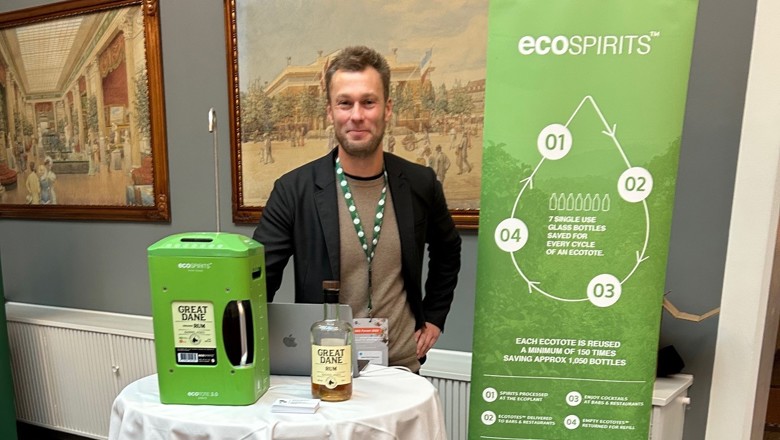Local Spirits works circularly in the preparations for producer responsibility

The overall objective of the producer responsibility for packaging is to limit waste by providing producers with economic incentives to, e.g. designing packaging that can be part of a circular economy. This can be for instance be done by reducing material consumption, rethinking material choices, using recycled materials, and/or designing packaging that can be sorted more easily and either reused or recycled. Get inspired by how VANA members Local Spirits and ecoSPIRITS approach the task.
Solutions may consist of reducing material consumption, rethinking material choices, using recycled materials and/or designing packaging that can sorted be more easily and either reused or recycled.
What opportunities does the producer responsibility for packaging open for?
"Packaging is one of the most significant factors contributing to our CO2 footprint in the spirits industry. And recycling is clearly preferable to recycling, both when we are looking for ways to reduce our environmental footprint and to limit our expenses in connection with the upcoming producer responsibility," says Jeppe Rasch Christensen, Chief Commercial Officer, at Local Spirits.
What are you doing to prepare for the producer responsibility?
"Glass is by far the heaviest form of packaging in terms of CO2 emissions, and both the weight and shape of glass bottles make them impractical and expensive to transport. Therefore, we work actively to promote the use of so-called bulk products rather than ordinary glass bottles. Henced, we have a large selection of our products on so-called 'ecoTOTEs', which is the name of the 4.5 litre recyclable units that are part of our closed-loop distribution system, ecoSPIRITS. They can be recycled at least 150 times, reduce CO2 emissions 60-90%, and then they can be stacked, so we can transport much more spirits per transport and save lots of fuel on top of that," explains Jeppe Rasch Christensen.
Om Local Spirits
Local Spirits was founded in 2016 by a number of small independent Danish spirits producers to create a distribution platform for the Danish micro producers. Local Spirits gathers all the local producers' products in one warehouse, so that e.g. specialty shops, hotels, festivals, restaurants, and bars can order everything from gin, vodka, whiskey and rum for tonics, fruit wine, syrups, and liqueurs from a wide range of the best Danish micro-producers in one joint trade.
Local Spirits sells 300 products from 25 different Danish manufacturers. 45% of the range is organic and most bestsellers, in addition to bottles, are also sold in the sustainable ecoTotes. Local Spirits is, among other things, primary supplier of spirits to the Roskilde Festival, VEGA and Villa Copenhagen and works through its membership in Økologisk Landsforening to promote the spread of organic spirits.
Read more about Local Spirits and ecoSPIRTITS here.
Watch a video explaining the circular distribution system here.
Why did you join VANA? – benefits for you?
"We are constantly thinking about how we can become even more sustainable by, e.g., optimising our packaging and recycling systems. Through our membership of VANA, we have, among other things, direct access to knowledge and guidance both about legislation and in relation to optimising our packaging. In the green transition, every initiative counts, and therefore we actively engage in the circular agenda, f.x. through collaborations and networks with actors such as @New Loop and VANA", Jeppe concludes.
Managing Director Martin Damgaard at ecoSpirits, adds: "Among other things, we signed up with VANA because we are a new within this area ourselves. Therefore, we try to follow the developments closely and familiarise ourselves with the rules that exist, so that we ultimately can guide our customers as well as possible.
